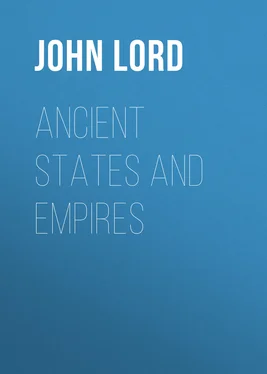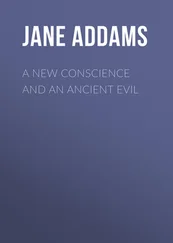John Lord - Ancient States and Empires
Здесь есть возможность читать онлайн «John Lord - Ancient States and Empires» — ознакомительный отрывок электронной книги совершенно бесплатно, а после прочтения отрывка купить полную версию. В некоторых случаях можно слушать аудио, скачать через торрент в формате fb2 и присутствует краткое содержание. Жанр: foreign_prose, История, foreign_edu, foreign_antique, на английском языке. Описание произведения, (предисловие) а так же отзывы посетителей доступны на портале библиотеки ЛибКат.
- Название:Ancient States and Empires
- Автор:
- Жанр:
- Год:неизвестен
- ISBN:нет данных
- Рейтинг книги:4 / 5. Голосов: 1
-
Избранное:Добавить в избранное
- Отзывы:
-
Ваша оценка:
- 80
- 1
- 2
- 3
- 4
- 5
Ancient States and Empires: краткое содержание, описание и аннотация
Предлагаем к чтению аннотацию, описание, краткое содержание или предисловие (зависит от того, что написал сам автор книги «Ancient States and Empires»). Если вы не нашли необходимую информацию о книге — напишите в комментариях, мы постараемся отыскать её.
Ancient States and Empires — читать онлайн ознакомительный отрывок
Ниже представлен текст книги, разбитый по страницам. Система сохранения места последней прочитанной страницы, позволяет с удобством читать онлайн бесплатно книгу «Ancient States and Empires», без необходимости каждый раз заново искать на чём Вы остановились. Поставьте закладку, и сможете в любой момент перейти на страницу, на которой закончили чтение.
Интервал:
Закладка:
John Lord
Ancient States and Empires / For Colleges and Schools
PREFACE
This work is designed chiefly for educational purposes, since there is still felt the need of some book, which, within moderate limits, shall give a connected history of the ancient world.
The author lays no claim to original investigation in so broad a field. He simply has aimed to present the salient points—the most important events and characters of four thousand years, in a connected narrative, without theories or comments, and without encumbering the book with details of comparatively little interest. Most of the ancient histories for schools, have omitted to notice those great movements to which the Scriptures refer; but these are here briefly presented, since their connection with the Oriental world is intimate and impressive, and ought not to be omitted, even on secular grounds. What is history without a Divine Providence?
In the preparation of this work, the author has been contented with the last standard authorities, which he has merely simplified, abridged, and condensed, being most indebted to Rawlinson, Grote, Thirlwall, Niebuhr, Mommsen, and Merivale,—following out the general plan of Philip Smith, whose admirable digest, in three large octavos, is too extensive for schools.
Although the author has felt warranted in making a free use of his materials, it will be seen that the style, arrangement, and reflections are his own. If the book prove useful, his object will be attained.
Stamford October, 1869 .
BOOK I.
ANCIENT ORIENTAL NATIONS
CHAPTER I.
THE ANTEDILUVIAN WORLD
The Creation.
The history of this world begins, according to the chronology of Archbishop Ussher, which is generally received as convenient rather than probable, in the year 4004 before Christ. In six days God created light and darkness, day and night, the firmament and the continents in the midst of the waters, fruits, grain, and herbs, moon and stars, fowl and fish, living creatures upon the face of the earth, and finally man, with dominion “over the fish of the sea, and the fowls of the air, and cattle, and all the earth, and every creeping thing that creepeth upon the earth.” He created man in his own image, and blessed him with universal dominion. He formed him from the dust of the ground, and breathed into his nostrils the breath of life. On the seventh day, God rested from this vast work of creation, and blessed the seventh day and sanctified it, as we suppose, for a day of solemn observance for all generations.
The garden of Eden.
He there planted a garden eastward in Eden, with every tree pleasant to the sight and good for food, and there placed man to dress and keep it. The original occupation of man, and his destined happiness, were thus centered in agricultural labor.
Adam and Eve.
But man was alone; so God caused a deep sleep to fall upon him, and took one of his ribs and made a woman. And Adam said, “this woman,” which the Lord had brought unto him, “is bone of my bone, and flesh of my flesh; therefore shall a man leave his father and mother, and shall cleave unto his wife: and they shall be one flesh.” Thus marriage was instituted. We observe three divine institutions while man yet remained in a state of innocence and bliss—the Sabbath; agricultural employment; and marriage.
Primeval Paradise.
Adam and his wife lived, we know not how long, in the garden of Eden, with perfect innocence, bliss, and dominion. They did not even know what sin was. There were no other conditions imposed upon them than they were not to eat of the fruit of the tree of knowledge of good and evil, which was in the midst of the garden—a preeminently goodly tree, “pleasant to the eyes, and one to be desired.”
Situation of Eden.
Where was this garden—this paradise—located? This is a mooted question—difficult to be answered. It lay, thus far as we know, at the head waters of four rivers, two of which were the Euphrates and the Tigris. We infer thence, that it was situated among the mountains of Armenia, south of the Caucasus, subsequently the cradle of the noblest races of men,—a temperate region, in the latitude of Greece and Italy.
Glory of Eden.
We suppose that the garden was beautiful and fruitful, beyond all subsequent experience—watered by mists from the earth, and not by rains from the clouds, ever fresh and green, while its two noble occupants lived upon its produce, directly communing with God, in whose image they were made, moral and spiritual—free from all sin and misery, and, as we may conjecture, conversant with truth in its loftiest forms.
But sin entered into the beautiful world that was made, and death by sin. This is the first recorded fact in human history, next to primeval innocence and happiness.
The temptation.
The progenitors of the race were tempted, and did not resist the temptation. The form of it may have been allegorical and symbolic; but, as recorded by Moses, was yet a stupendous reality, especially in view of its consequences.
The Devil.
The tempter was the devil—the antagonist of God—the evil power of the world—the principle of evil—a Satanic agency which Scripture, and all nations, in some form, have recognized. When rebellion against God began, we do not know; but it certainly existed when Adam was placed in Eden.
His assumption of the form of a serpent.
The form which Satanic power assumed was a serpent—then the most subtle of the beasts of the field, and we may reasonably suppose, not merely subtle, but attractive, graceful, beautiful, bewitching.
The disobedience of Eve.
The first to feel its evil fascination was the woman, and she was induced to disobey what she knew to be a direct command, by the desire of knowledge as well as enjoyment of the appetite. She put trust in the serpent. She believed a lie. She was beguiled.
The Fall of Adam.
The man was not directly beguiled by the serpent. Why the serpent assailed woman rather than man, the Scriptures do not say. The man yielded to his wife. “She gave him the fruit, and he did eat.”
The effect.
Immediately a great change came over both. Their eyes were opened. They felt shame and remorse, for they had sinned. They hid themselves from the presence of the Lord, and were afraid.
The penalty.
God pronounced the penalty—unto the woman, the pains and sorrows attending childbirth, and subserviency to her husband; unto the man labor, toil, sorrow—the curse of the ground which he was to till—thorns and thistles—no rest, and food obtained only by the sweat of the brow; and all these pains and labors were inflicted upon both until they should return to the dust from whence they were taken—an eternal decree, never abrogated, to last as long as man should till the earth, or woman bring forth children.
Introduction of sin.
Thus came sin into the world, through the temptations of introduction Satan and the weakness of man, with the penalty of labour, pain, sorrow, and death.
Expulsion from paradise.
Man was expelled from Paradise, and precluded from re-entering it by the flaming sword of cherubim, until the locality of Eden, by thorns and briars, and the deluge, was obliterated forever. And man and woman were sent out into the world to reap the fruit of their folly and sin, and to gain their subsistence in severe toil, and amid, the accumulated evils which sin introduced.
The mitigation of the punishment.
The only mitigation of the sentence was the eternal enmity between the seed of the woman and the seed of the Serpent, in which the final victory should be given to the former. The rite of sacrifice was introduced as a type of the satisfaction for sin by the death of a substitute for the sinner; and thus a hope of final forgiveness held out for sin, Meanwhile the miseries of life were alleviated by the fruits of labor, by industry.
Читать дальшеИнтервал:
Закладка:
Похожие книги на «Ancient States and Empires»
Представляем Вашему вниманию похожие книги на «Ancient States and Empires» списком для выбора. Мы отобрали схожую по названию и смыслу литературу в надежде предоставить читателям больше вариантов отыскать новые, интересные, ещё непрочитанные произведения.
Обсуждение, отзывы о книге «Ancient States and Empires» и просто собственные мнения читателей. Оставьте ваши комментарии, напишите, что Вы думаете о произведении, его смысле или главных героях. Укажите что конкретно понравилось, а что нет, и почему Вы так считаете.







